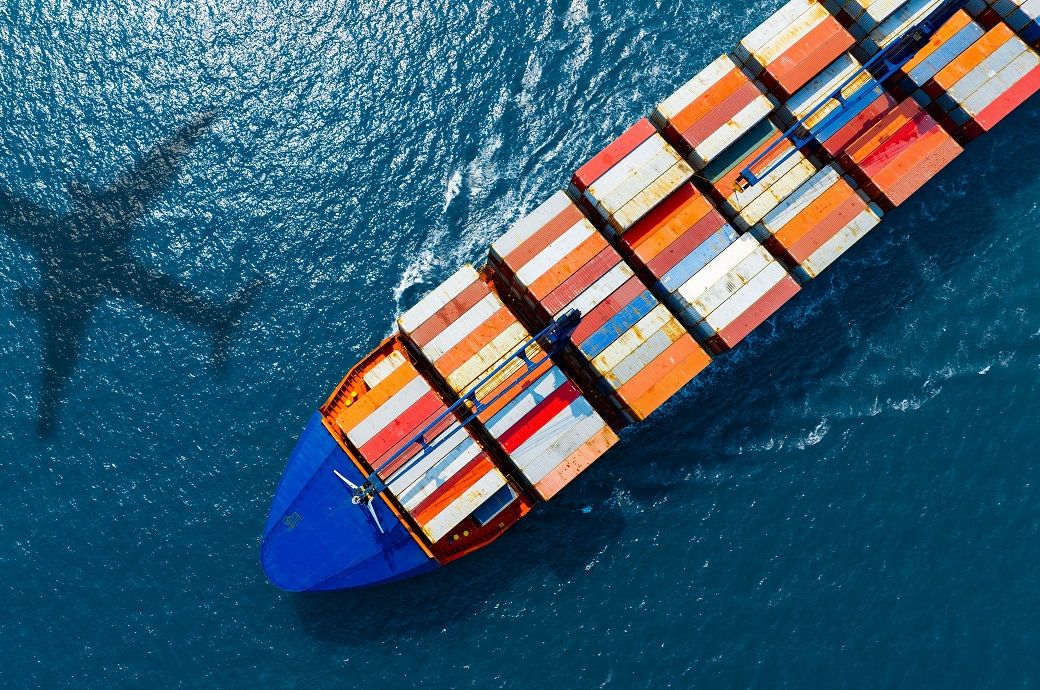
Political tensions, shifting trade patterns and reconfigured shipping lanes are reshaping maritime geography. Ships that once passed through the Red Sea in days now sail for weeks around the Cape of Good Hope. Freight rates are high and volatile, supply chains are fragile, and port disruption is becoming chronic, UNCTAD said in its latest Maritime Transport 2025 report.
Vessel rerouting pushed up ton-miles to a record 6 per cent in 2024, nearly three times faster than trade volume growth. By May 2025, tonnage through the Suez Canal was still 70 per cent below 2023 levels. The Strait of Hormuz—through which 11 per cent of global trade and a third of seaborne oil pass—also faced disruption risks.
Policy measures, including new US tariffs and port fees for certain foreign vessels, have added costs and uncertainty. Energy shipping is also in transition: coal shipments rose despite their long-term decline, oil volumes stayed flat but took longer routes, and gas trade increased.
Container shipping was hit particularly hard. Spot and charter rates neared Covid-19 peaks by mid-2024 before easing but remained well above pre-crisis levels. The Shanghai Containerized Freight Index averaged 2,496 points in 2024, up 149 per cent from 2023, with July spot rates reaching $3,600 per container.
Tanker markets spiked in June 2025 amid heightened risks in the Strait of Hormuz. Persistent high transport costs risk hitting developing countries hardest, particularly small island developing states and least developed countries.
Longer routes are also raising emissions. Shipping’s greenhouse gas emissions increased by 5 per cent in 2024. Currently, only 8 per cent of the global fleet’s tonnage is equipped to use alternative fuels, and ship recycling rates remain low. Although over 90 per cent of the current fleet still relies on conventional fuels, yet more than half of new ship orders are for alternative fuel vessels.
The International Maritime Organization’s (IMO) Net-Zero Framework, to be considered in October 2025, aims to set the course towards net-zero emissions by 2050 through a global fuel standard and a carbon pricing mechanism. Revenues generated could help fund a just transition, particularly in small island and least developed countries.
But decarbonising maritime transport will entail significant costs, including fleet renewal, port adaptation and alternative fuel infrastructure. UNCTAD stressed the need for clear regulatory signals, investment and collaboration across governments, industry and finance.
Meanwhile, technological, environmental and geoeconomic shifts are converging faster than ever. Automation and digitalisation promise efficiency but also increase cyber risks.
The report highlighted five priority actions: stabilising trade policies to reduce uncertainty and maintain supply chain flows; investing in green, resilient infrastructure; promoting digitalisation with strong cybersecurity; accelerating fleet renewal and sustainable recycling; and protecting vulnerable economies from the worst effects of high costs.
“The transitions ahead – to zero carbon, to digital systems, to new trade routes – must be just transitions. They must empower, not exclude. Build resilience, not deepen vulnerability,” said Rebeca Grynspan, secretary-general of UNCTAD.
ALCHEMPro News Desk (SG)
Receive daily prices and market insights straight to your inbox. Subscribe to AlchemPro Weekly!